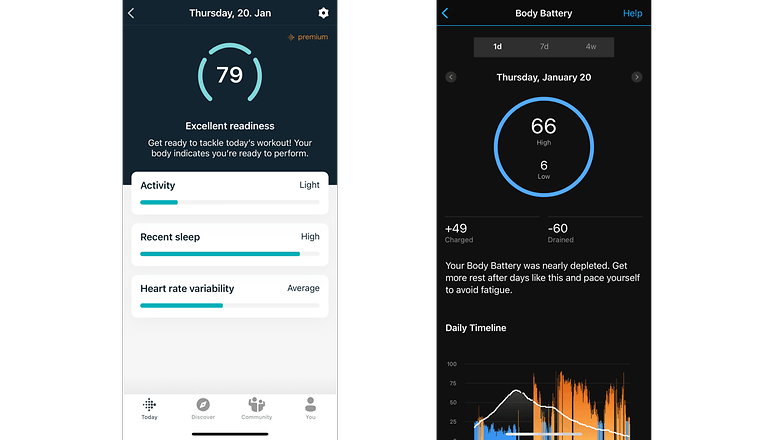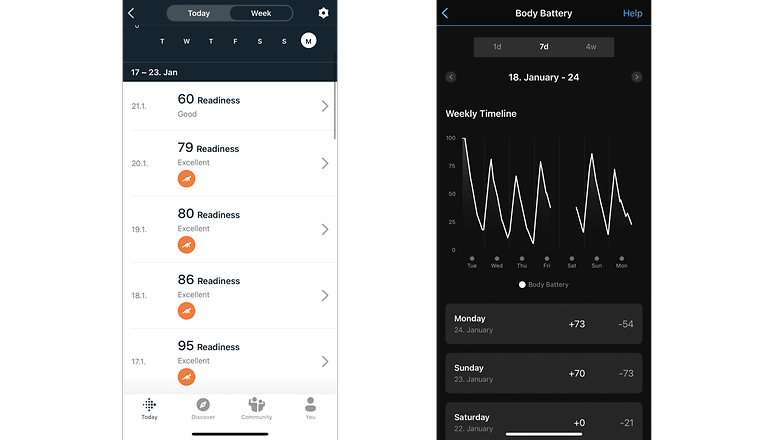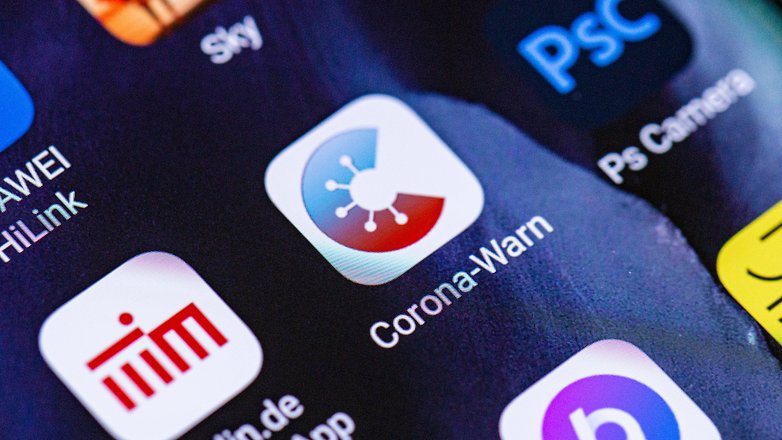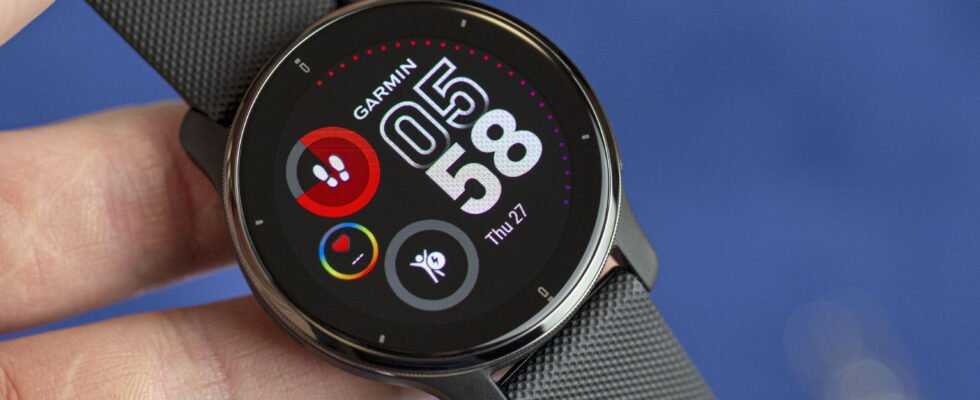If the fitness tracker tells you that you are tired today, then you have lost control of your life – right? The smartwatches from Garmin and Fitbit, for example, tell you how fit you are with the help of body battery or daily form index. And there are also third-party apps for the Apple Watch with a similar feature. But is it even a good idea to go after it?
Whether it’s the red wine, the night shift or the leg day to blame – our daily form is not always ideal. Ideally, we feel this and can judge for ourselves whether we should go full throttle again the next day or rather take it easy. Garmin, Fitbit & Co. now want to quantify this daily fitness and condense different measured values into one score.
No smartwatch, but all the more trackers: Whoop is only just entering the European market with its wearables and their detailed analysis options. / © NextPit
At Fitbit, monthly paying premium users have been able to access the daily form index since the end of 2021. Here the manufacturer calculates the sleep quality, the activity level and the heart rate variability into a score. In the test of the Fitbit Sense, the influence of the activity was particularly noticeable. A few hard training sessions quickly brought the daily form index down.
Garmin calculates a very similar value and calls it Body Battery. Again, sleep, activity, and heart rate activity all play important roles. In addition, there is the stress level, which Garmin distills from heart rate and heart rate variability. While Fitbit gives a starting value for each day, Garmin always shows a snapshot. So you can see, for example, whether you prefer to hit the gym or hit the couch at the end of a hard day.

Fitbit (left) and Garmin have different approaches when it comes to daytime fitness. / © Garmin, Fitbit, Screenshot: NextPit
But the question is: Can a watch really tell me how fit I am – and doesn’t that entail certain risks? Garmin, for example, writes on its website:
Garmin watches are not approved medical devices and are therefore not intended for the diagnosis or treatment of diseases or similar conditions. In any case, always seek professional advice if you are concerned about your health.
And that’s the most important thing: If you feel bad and your smartwatch says “Go”, then always listen to your body. Don’t run a half marathon if you’re coughing your lungs out with a full body battery and maximum readiness score. But that should be obvious anyway.
I also find Ben’s interjection at this point interesting: If we can create such detailed training plans using the Garmin Connect app, for example, why can’t the training load be controlled via the fitness determined at the time of training? Especially with repetitive training routines, trackers should also be able to compare the load of the same exercise over and over again – and also recommended: Load yourself a slice more on the dumbbell, the deadlift just didn’t particularly strain you.

Here you can see a comparison of the weekly view for Garmin and Fitbit. / © NextPit
However, this is exactly where the risks for manufacturers are high. Fitbit alone has been sued several times in the USA, the allegations were, for example, inaccurate heart rate measurement or incorrect sleep data. The more concrete the watches make recommendations for “more optimized” behavior, the greater the danger.
On the other hand, there is an interesting aspect: there are things hidden in the vital parameters measured by smartwatches that we cannot feel. An increase in the resting heart rate and heart rate variability can, for example, indicate an impending infection that is not yet causing any symptoms. A rest day at the right time can significantly shorten the duration of the illness.
Of course you can take this further as you like, especially with the experience of the past few years in your bones. If there is a risk of illness, the tracker could also warn against visiting the grandmother. Or recently met people get a few percent added to their disease risk score and are warned more quickly about unfavorable vital data determined via their own tracker.

Has caused many discussions about data protection: the Corona-Warn-App. / © NextPit
The Fitbit CEO once described his vision for fitness trackers as a “seatbelt for the future” at the IFA a few years ago – in a few years it could be almost crazy to live without. Just like nowadays hardly anyone drives a car without a seat belt. In any case, the possibilities are gigantic, from infections and pandemics to the early detection of heart disease and diabetes.
How do you actively use the data from your smartwatches or fitness trackers to adjust your training or your everyday life? And what do you think: where is the journey going in the next few years, and what would you wish for?
